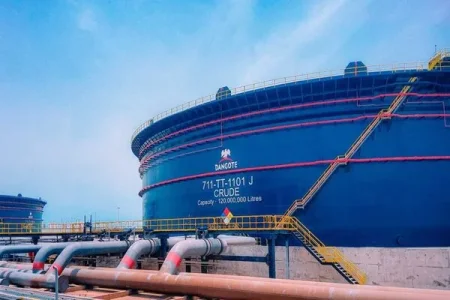
In a bold move to keep its cocoa industry running smoothly, Ghana is seeking to borrow $400 million from cocoa traders after encountering difficulties in securing its traditional annual loan from international banks. This development comes amid ongoing efforts to restructure the country's debt, putting pressure on the government's finances.
The Ghana Cocoa Board, also known as Cocobod, the regulatory authority overseeing Ghana's cocoa industry, has initiated talks with various traders, including industry giants like Olam Group Ltd. and Barry Callebaut AG. The purpose of this loan is to finance crucial activities for the upcoming cocoa production season in 2023-24, such as acquiring seedlings, chemicals, fertilizers, and facilitating the procurement of cocoa beans directly from farmers.
Sources familiar with the matter, who spoke with Bloomberg on condition of anonymity, reveal that Cocobod has managed to secure approximately half of the intended $400 million loan from the involved companies.
The loan's interest rate is set at approximately 5%, and it's worth noting that Cocobod typically secures loans from investors at more favorable rates compared to the government. Traditionally, these loans are negotiated between June and July, with final agreements reached in September, just in time for the new cocoa harvest starting in October.
This year, however, posed more significant challenges for Ghana, as the country had to restructure its debts as a precondition for accessing a $3 billion loan from the International Monetary Fund (IMF). Additionally, Cocobod had to navigate its own debt restructuring, amounting to 7.7 billion GHC, making it less attractive to investors.
The disruption in the cocoa value chain in Ghana due to insufficient funding is a growing concern. Previously, Cocobod would finance local buying companies (LBCs) to purchase cocoa beans from farmers on its behalf. However, due to funding constraints, Cocobod has been forced to engage foreign buyers to directly purchase cocoa from farmers with their own funds, which the board promises to reimburse. This change in the process has led to the closure of numerous LBCs.
Despite the challenges, Ghana is projected to produce 830,000 tons of cocoa in the upcoming season, a notable increase from the decades-low 683,000 tons of the last season. Nevertheless, concerns about tight supply continue to plague the global cocoa industry, emphasizing the significance of this loan to ensure the stability and growth of Ghana's vital cocoa sector.
Source: Nairametrics




